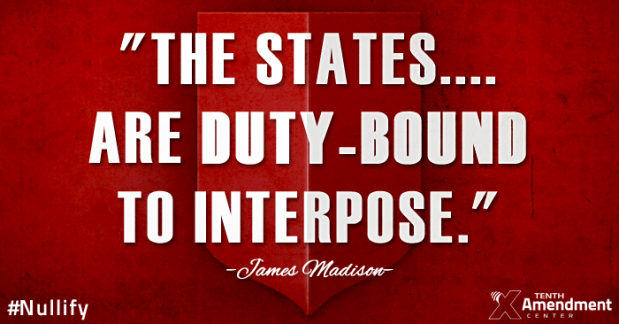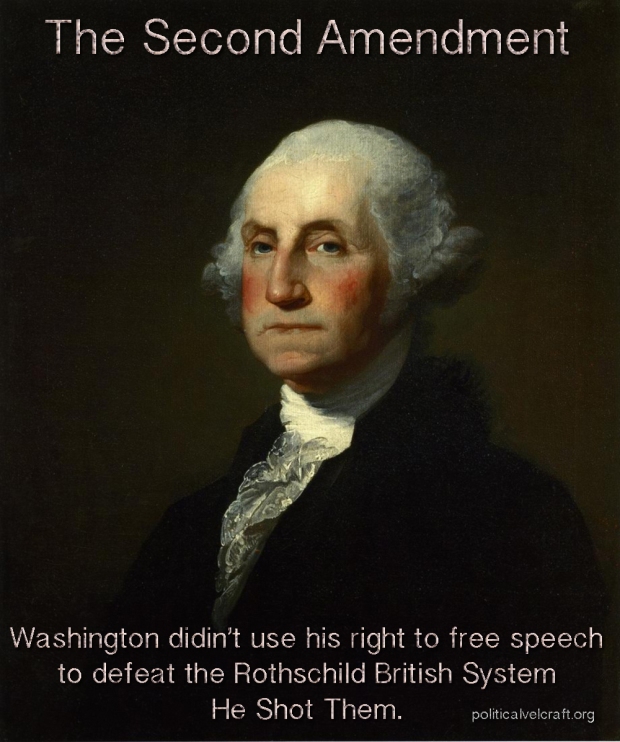We are a nation that has never lived under true radical tyranny, so many of us take for granted what we have and do not believe it will ever be taken from us. You are right, we will give it up to the tyrants if we do not get serious about all this being done by a foreign nation through its many agents infiltrated into this government. Time to reach deep down and grab that courage and heart that gave us this nation.
If you do not, then watch the video we put up about the real Genocide in Germany after WW II. That will be your new reality. It was theirs, for the Russians in 1917, and for Germany after WW II, and it will be ours after WW III, UNLESS WE BEGIN NOW TO STOP IT. Iceland did it and is now in recovery. If they can do it, so can we.
Federal Government Offices Of Washington D.C.; No Such Thing As The 16th. Amendment Power To Tax
http://politicalvelcraft.org/2014/05/09/yes-virginia-states-trump-the-federal-government-offices-of-washington-d-c-many-judges-abuse-their-discretion/
President Madison On The Role Of The States:

“the states who are parties thereto, have the right, and are in duty bound, to interpose for arresting the progress of the evil, and for maintaining within their respective limits, the authorities, rights and liberties appertaining to them.”
~ President James Madison
Supremacy Clause has been abused by many judges by ulterior discretion. If there is a conflict between The States and the general government offices in D.C., that have not been afforded to the corporate offices by the States, The States are duty bound to interpose.
- U.S. Sheriffs Are The Beacon Against Over Reach By Federal Or State Authorities: There Is No Authority Higher!
- California Sheriff Officially Strips Obama Federal Agents Of All Policing Powers For Stepping Over Constitutional Line: Illegal Agenda 21 Stopped Cold!
A power outside of the Constitution must exist to hold it in check.
In the American Republic Constitutional system, the people of the states hold that power. Americans March Against Obama In The +2,000,000 People Protest That MSNBC said were only about 500. September 12, 2010
The real problem is that in most cases, the people fail to focus the power of the state or local governments to stop federal usurpation. In the few cases they have, such as the legalization of medical marijuana in 20+ states, it’s proven quite effective.
We just need more, and on more issues!
We call the process nullification, and James Madison gave us the blueprint for stopping federal overreach before the Constitution was even ratified. Madison acknowledged anti-federalist fears that the new general government would try to exercise undelegated powers. And he assured them that the power of the states could keep the tendency in check in Federalist 46.
"Should an unwarrantable measure of the federal government be unpopular in particular States, which would seldom fail to be the case, or even a warrantable measure be so, which may sometimes be the case, the means of opposition to it are powerful and at hand.
The disquietude of the people; their repugnance and, perhaps, refusal to co-operate with the officers of the Union; the frowns of the executive magistracy of the State; the embarrassments created by legislative devices, which would often be added on such occasions, would oppose, in any State, difficulties not to be despised; would form, in a large State, very serious impediments; and where the sentiments of several adjoining States happened to be in unison, would present obstructions which the federal government would hardly be willing to encounter.
Federal Office Has Been Given By The States & Constitution Only Thirty Enumerated Powers To Implement For General Welfare.
Article I, Section 8 of the Constitution is widely cited as being an exhaustive list of Congressional power. But, in reality, there are a total of thirty (up to 35, depending on how they’re counted) Congressional powers that are listed throughout the document. Find them here:
There Is No Such Thing As The 16th. Amendment ~ The Power To Tax Is Fictitious And Was Laid To Rest In 1776!
This power given to the federal offices in D.C. was done so illegally, it is known as the 16th Amendment to the Constitution of the United States of America. The 16th. Amendment was not ratified. In other words taxation is illegal, the IRS is an illegal entity created by smoke & mirrors and deception 1913. Interesting year eh? This is the same year that the Rothschild fed reserve was snuck into a bill and signed by a british son Woodrow Wilson.
- To lay and collect Taxes, Duties, Imposts and Excises, to pay the Debts and provide for the common Defence and general Welfare of the United States; but all Duties, Imposts and Excises shall be uniform throughout the United States; Obama really blows on this one for Obamacare.
Unconstitutional usurpations by one branch of government of powers entrusted to a coequal branch are not rendered constitutional by repetition.
The United States Supreme Court held unconstitutional hundreds of laws enacted by Congress over the course of five decades that included a legislative veto of executive actions in INS v. Chada, 462 U.S. 919 (1982).
Tenth Amendment Center
- To borrow Money on the credit of the United States;
- To regulate Commerce with foreign Nations, and among the several States, and with the Indian Tribes;
- To establish an uniform Rule of Naturalization, and uniform Laws on the subject of Bankruptcies throughout the United States;
- To coin Money, regulate the Value thereof, and of foreign Coin, and fix the Standard of Weights and Measures;
- To provide for the Punishment of counterfeiting the Securities and current Coin of the United States;
- To establish Post Offices and post Roads;
- To promote the Progress of Science and useful Arts, by securing for limited Times to Authors and Inventors the exclusive Right to their respective Writings and Discoveries;
- To constitute Tribunals inferior to the supreme Court;
- To define and punish Piracies and Felonies committed on the high Seas, and Offences against the Law of Nations;
- To declare War, grant Letters of Marque and Reprisal, and make Rules concerning Captures on Land and Water;
- To raise and support Armies, but no Appropriation of Money to that Use shall be for a longer Term than two Years;
- To provide and maintain a Navy;
- To make Rules for the Government and Regulation of the land and naval Forces;
- To provide for calling forth the Militia to execute the Laws of the Union, suppress Insurrections and repel Invasions;
- To provide for organizing, arming, and disciplining, the Militia, and for governing such Part of them as may be employed in the Service of the United States, reserving to the States respectively, the Appointment of the Officers, and the Authority of training the Militia according to the discipline prescribed by Congress;
- To exercise exclusive Legislation in all Cases whatsoever, over such District (not exceeding ten Miles square) as may, by Cession of particular States, and the Acceptance of Congress, become the Seat of the Government of the United States, and to exercise like Authority over all Places purchased by the Consent of the Legislature of the State in which the Same shall be, for the Erection of Forts, Magazines, Arsenals, dock-Yards, and other needful Buildings; And
- To make all Laws which shall be necessary and proper for carrying into Execution the foregoing Powers, and all other Powers vested by this Constitution in the Government of the United States, or in any Department or Officer thereof.
- No State shall, without the Consent of the Congress, lay any Imposts or Duties on Imports or Exports, except what may be absolutely necessary for executing it’s inspection Laws:and the net Produce of all Duties and Imposts, laid by any State on Imports or Exports, shall be for the Use of the Treasury of the United States; and all such Laws shall be subject to the Revision and Controul of the Congress.
- The Congress may determine the Time of chusing the Electors, and the Day on which they shall give their Votes; which Day shall be the same throughout the United States.
- In Case of the Removal of the President from Office, or of his Death, Resignation, or Inability to discharge the Powers and Duties of the said Office, the Same shall devolve on the Vice President, and the Congress may by Law provide for the Case of Removal, Death, Resignation or Inability, both of the President and Vice President, declaring what Officer shall then act as President, and such Officer shall act accordingly, until the Disability be removed, or a President shall be elected.
- The judicial Power of the United States, shall be vested in one supreme Court, and in such inferior Courts as the Congress may from time to time ordain and establish.
- The Trial of all Crimes, except in Cases of Impeachment, shall be by Jury; and such Trial shall be held in the State where the said Crimes shall have been committed; but when not committed within any State, the Trial shall be at such Place or Places as the Congress may by Law have directed.
- The Congress shall have Power to declare the Punishment of Treason, but no Attainder of Treason shall work Corruption of Blood, or Forfeiture except during the Life of the Person attainted.
- Full Faith and Credit shall be given in each State to the public Acts, Records, and judicial Proceedings of every other State. And the Congress may by general Laws prescribe the Manner in which such Acts, Records, and Proceedings shall be proved, and the Effect thereof.
- New States may be admitted by the Congress into this Union;
- The Congress shall have Power to dispose of and make all needful Rules and Regulations respecting the Territory or other Property belonging to the United States; and nothing in this Constitution shall be so construed as to Prejudice any Claims of the United States, or of any particular State.
- The Congress, whenever two thirds of both Houses shall deem it necessary, shall propose Amendments to this Constitution, or, on the Application of the Legislatures of two thirds of the several States, shall call a Convention for proposing Amendments, which, in either Case, shall be valid to all Intents and Purposes, as Part of this Constitution, when ratified by the Legislatures of three fourths of the several States, or by Conventions in three fourths thereof, as the one or the other Mode of Ratification may be proposed by the Congress
- The House of Representatives shall chuse their Speaker and other Officers; and shall have the sole Power of Impeachment…
- The Senate shall have the sole Power to try all Impeachments. When sitting for that Purpose, they shall be on Oath or Affirmation. When the President of the United States is tried, the Chief Justice shall preside: And no Person shall be convicted without the Concurrence of two thirds of the Members present.
- The Times, Places and Manner of holding Elections for Senators and Representatives, shall be prescribed in each State by the Legislature thereof; but the Congress may at any time by Law make or alter such Regulations, except as to the Places of chusing Senators.
Jury’s Power Of Nullification Is The U.S. Republic’s Justice!
Let’s break down Madison’s prescription.“Should an unwarrantable measure…” What does Madison mean by “unwarrantable?” The word literally means “unjustifiable.” Madison was clearly talking about federal acts with no constitutional justification. In other words, unconstitutional.
But notice something interesting, Madison implies that state governments can even resist a “warrantable” or justifiable federal act.
So what does Madison suggest states do when the feds overstep their authority?
Oppose it!
“…the means of opposition to it are powerful and at hand.” Madison anticipated the possibility of federal usurpation and clearly believed the states would serve as a check on federal power. He believed the states should and would resist unconstitutional acts.
So, what are the “means of opposition?”
1. Disquietude of the people – This would include protests and petitions generated at the grassroots level. Madison expected the people would throw a fit when the feds usurped power – even using the word “repugnance” to describe their displeasure. That’s a pretty strong word. And inevitably, disquietude leads to action – first at the local level, then bubbling up to the state level. That leads to the next step.
2. Refusal to co-operate with the officers of the Union – Noncompliance. We preach it every day at the Tenth Amendment Center. Madison apparently knew what we know today. The feds rely on cooperation from state and local governments, as well as individuals. When enough people refuse to comply, they simply can’t enforce their so-called laws.

Sheriffs
Consider 20 states operating legal medical marijuana programs. Sure, the feds can make some lives miserable with DEA raids, but no matter what they do, they will never get that genie back in the bottle.Legal medical marijuana is here to stay.
“..medical marijuana now poses a real threat to the enforcement power of the Federal Government. With state after state defying Washington D.C. over this issue..Washington D.C. has a choice to make; enforce their laws based on a very liberal interpretation of the Commerce Clause by sending thousands of DEA agents into all fifty states, or look the other way.
Thus far, they’ve chosen to look the other way, for if they create the appearance of a Federal takeover of police powers in the States, they will fully expose their extra-constitutional behavior and provoke a direct confrontation with the States who will use the 10th Amendment to defend their prerogatives.” Mark KreslinsA recent report shows the feds now labor with marijuana eradication in California because the state refuses to pitch in like it once did.
And Look at the feds struggling to implement Obamacare. Thirty states refusing to go along and set up the insurance exchanges threw quite the monkey wrench in the process. According to a Western Center for Journalism report, the GAO says vital parts of the computer systems running the exchanges remain unfinished. The government has no way to know who’s even eligible for federal subsidies, and no system exists to monitor insurance plans for compliance with the mountains of new regulations.
“It’s so complex and byzantine that the government is struggling to implement the law,” wrote Western Center for Journalism reporter Floyd Brown.
The GAO indicates the exchanges won’t be up and running by October as required by the law.

Mahatma Gandhi Brought Down Rothschild In India.
The Year Gandhi Was Murdered Rothschild Opened Up Shop With The 1948 Creation Of The State Of Israel Which He Purchased The Land For.
The Year Gandhi Was Murdered Rothschild Opened Up Shop With The 1948 Creation Of The State Of Israel Which He Purchased The Land For.
3, The frowns of the executive magistracy of the State – Here Madison envisions governors formally protesting federal actions. This not only raises public awareness; executive leadership will also lead to the next step – legislative action. Prior to passage of the Kentucky Resolutions of 1798, Gov. Garrard delivered a powerful message condemning the Alien and Sedition Acts and calling on legislative action.
4. Legislative devices, which would often be added on such occasions -What exactly does Madison mean by “legislative devices?” He doesn’t make that clear. But we know they include resolutions, because he and Thomas Jefferson penned the Kentucky and Virginia Resolutions in response to the draconian and unconstitutional Alien and Sedition Acts of 1798. Together, these Principles of ’98 formalize the doctrine of nullification.
But do legislative devices stop at non-binding resolutions? Clearly not, because Madison said these measures would create “difficulties” and “impediments.”
Seventeenth century dictionaries list “obstruction” as a synonym for impediment. In other words, these legislative devices would serve to block the operation of unconstitutional power. This infers actions including formal, binding prohibitions of state or local cooperation, and outright interposition: “to intervene or place an agency between two positions.”

“The constitutions of most of our States assert that all power is inherent in the people; that … it is their right and DUTY to be at all times armed; … ” Thomas Jefferson, letter to Justice John CartwrightThe personal liberty laws passed by northern states to thwart the Fugitive Slave Act of 1850 serve as the best historical example of “legislative devices.”
The Fugitive Slave Act of 1850 made a farce of due process, allowing for the arrest of a suspected runaway slave based on the word of the “property owner.” He simply had to swear an affidavit attesting to his “ownership” of the person in question, and he was allowed to drag that man or woman back South into slavery.

- United States Supreme Court Doesn’t Issue “Rulings”: They Only Publish Their Opinions ~ Treat Them As Such!
- The States Nullify Unconstitutional Federal Laws, Even When Endorsed By Supreme Court: Public Opinion & Support Make It Easy To Resist Federal Tyranny.
Instead of simply submitting to federal authority and quietly participating in constitutionally dubious and morally repugnant fugitive-slave roundups, northern lawmakers aggressively resisted the fugitive slave acts. Officials in these states did everything within their power to thwart enforcement, including denying federal agents the use of jails, and even impeaching state officials who lent support to fugitive-slave claimants.
The Michigan legislature passed a law guaranteeing habeas corpus rights and a jury trial to any accused runaway, all in defiance of federal “law.” Some states went as far as to subject anybody attempting to remove a accused fugitives from the state without following the prescribed state procedure to kidnapping charges. And there were documented cases of arrests of federal agents.
Madison said these actions would oppose, in any State, difficulties not to be despised; would form, in a large State, very serious impediments; and where the sentiments of several adjoining States happened to be in unison, would present obstructions which the federal government would hardly be willing to encounter.
Was he right? Well, northern resistance to the Fugitive Slave Act of 1850 was so effective, South Carolina listed “nullification” of the fugitive slave laws in its declaration of causes for secession.

Saint Andrew’s Cross aka; The U.S. Confederate Flag! It was not for slavery, it was for freedom from high taxation by The Federal Government!
Madison clearly expected the states to serve as a check on federal power. He laid out the blueprint. And when the people of states have followed it, they’ve found success. But sadly, states seldom follow Madison’s prescription. Why? Because the people don’t demand it. Too often, they grovel in marble hallways along the Potomac and beg federal officials to stop abusing their authority, instead of demanding that they stop. The power ultimately lies in us – the people.
The Constitution does not protect the sovereignty of States for the benefit of the States or state governments as abstract political entities, or even for the benefit of the public officials governing the States. To the contrary, the Constitution divides authority between federal and state governments for the protection of individuals. State sovereignty is not just an end in itself:
“Rather, federalism secures to citizens the liberties that derive from the diffusion of sovereign power.”We can’t blame the Constitution for our failure to enforce it.
Far too many Americans view any resistance to federal authority as rebellion. They need to recognize that the true rebels are elected officials, federal bureaucrats and functionaries in Washington D.C. who refuse to respect the constitutional limits of their power. It’s time for us to take on our proper role in this system and put down the rebellion.
As Madison said, the means are “powerful and at hand.”
Tenth Amendment Center
Founding Father & President ~ James Madison

Related Articles:
- The Giant Has Awakened: U.S. County Sheriffs Turn Back Federal Assaults!
- Oregon Sheriff Gil Gilbertson Gives Federal Agents The Boot: Feds Have No Jurisdiction!
- Individual Sovereign States Reign Control Over General Government In Washington D.C.
- War On Feds ~ Utah Sheriffs Warn Obama: Your Feds Will Not Be Allowed To Take Utahan Firearms!
- 132 Nations Join To End Rothschild Banking Jig aka; NWO: The Secret He-man Mutual Appreciation Economy!
- Four Star Generals Demand Repeal Anti-Constitutional NDAA Rule aka; The Banker’s Indefinite Detention of Americans.
- Sheriff Who Protected Amish Farmers From Obama’s Federal Government ~ Receives Award For “Meritorious Valor” ~ States Reign Supreme Over Federal Government.
- The Sheriff Has More Power In His County Than The President Of The United States: U.S. Constitution U.S. Supreme Court ~ Quashes Obama’s Claim To “Supremacy Clause”
- Nevada Sheriff Tony DeMeo’s ‘Swat Team’ ~ Stops Federal Government: Feds Engaging In Illegal Confiscation Of Cattle And Water Rights Of County Property Owner.
The article is reproduced in accordance with Section 107 of title 17 of the Copyright Law of the United States relating to fair-use and is for the purposes of criticism, comment, news reporting, teaching, scholarship, and research.




No comments:
Post a Comment